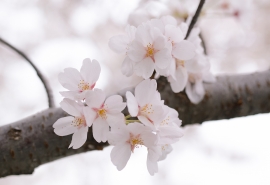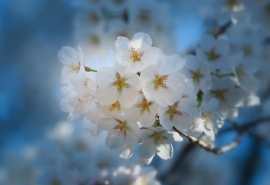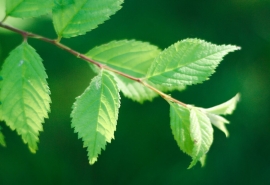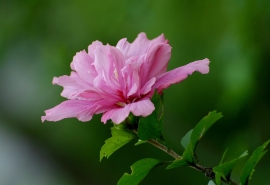
---------造句------------
chastise,regulated,confide.需要原创不要翻译器里的例句和网上搜的Any person who breaks the law and order of the society should be chastised.
The economist said that the market should not be regulated by the government.
He confided his secrets in me.
全部原创句子
The economist said that the market should not be regulated by the government.
He confided his secrets in me.
全部原创句子
beowulf and unferth
有没有人能帮忙找个关于beowulf and unferth得英文文章,350字得,急用,谢谢勒,如果有好得话再多给个20分.^_^中文阅读地址:
http://book520.com/shige/gw-bawp/index.htm
英文大纲:
Short Summary
The poem begins with a brief genealogy of the Danes. Scyld Shefing was the first great king of the Danes, known for his ability to conquer enemies. Scyld becomes the great-grandfather of Hrothgar, the king of the Danes during the events of Beowulf. Hrothgar, like his ancestors before him, is a good king, and he wishes to celebrate his reign by building a grand hall called Heorot. Once the hall is finished, Hrothgar holds a large feast. The revelry attracts the attentions of the monster Grendel, who decides to attack during the night. In the morning, Hrothgar and his thanes discover the bloodshed and mourn the lost warriors. This begins Grendel's assault upon the Danes.
Twelve years pass. Eventually the news of Grendel's aggression on the Danes reaches the Geats, another tribe. A Geat thane, Beowulf, decides to help the Danes; he sails to the land of the Danes with his best warriors. Upon their arrival, Hrothgar's thane Wulfgar judges the Geats worthy enough to speak with Hrothgar. Hrothgar remembers when he helped Beowulf's father Ecgtheow settle a feud; thus, he welcomes Beowulf's help gladly.
Heorot is filled once again for a large feast in honor of Beowulf. During the feast, a thane named Unferth tries to get into a boasting match with Beowulf by accusing him of losing a swimming contest. Beowulf tells the story of his heroic victory in the contest, and the company celebrates his courage. During the height of the celebration, the Danish queen Wealhtheow comes forth, bearing the mead-cup. She presents it first to Hrothgar, then to the rest of the hall, and finally to Beowulf. As he receives the cup, Beowulf tells Wealhtheow that he will kill Grendel or be killed in Heorot. This simple declaration moves Wealhtheow and the Danes, and the revelry continues. Finally, everyone retires. Before he leaves, Hrothgar promises to give Beowulf everything if he can defeat Grendel. Beowulf says that he will leave God to judge the outcome. He and his thanes sleep in the hall as they wait for Grendel.
Eventually Grendel arrives at Heorot as usual, hungry for flesh. Beowulf watches carefully as Grendel eats one of his men. When Grendel reaches for Beowulf, Beowulf grabs Grendel's arm and doesn't let go. Grendel writhes about in pain as Beowulf grips him. He thrashes about, causing the hall to nearly collapse. Soon Grendel tears away, leaving his arm in Beowulf's grasp. He slinks back to his lair in the moors and dies.
The Danes, meanwhile, consider Beowulf as the greatest hero in Danish history. Hrothgar's minstrel sings songs of Beowulf and other great characters of the past, including Sigemund (who slew a dragon) and Heremod (who ruled his kingdom unwisely and was punished). In Heorot, Grendel's arm is nailed to the wall as a trophy. Hrothgar says that Beowulf will never lack for riches, and Beowulf graciously thanks him. The horses and men of the Geats are all richly adorned, in keeping with Hrothgar's wishes.
Another party is held to celebrate Beowulf's victory. Hrothgar's minstrel tells another story at the feast, the story of the Frisian slaughter. An ancient Danish king had a daughter named Hildeburh; he married her to a king of the Frisians. While Hnaef, Hildeburh's brother, visited his sister, the Frisians attacked the Danes, killing Hnaef and Hildeburh's son in the process. Hengest, the next leader of the Danes, desired vengeance, and in the spring, the Danes attacked the Frisians, killing their leader and taking Hildeburh back to Denmark.
After this story is told, Wealhtheow presents a necklace t搜趣网o Hrothgar while pleading with her brother-in-law Hrothulf to help her two young sons if they should ever need it. Next she presents many golden treasures to Beowulf, such as necklaces, cups, and rings. Soon the feast ends, and everyone sleeps peacefully.
In the night, Grendel's mother approaches the hall, wanting vengeance for her son. The warriors prepared for battle, leaving enough time for Grendel's mother to grab one of Hrothgar's counselors and run away. When Beowulf is summoned to the hall, he finds Hrothgar in mourning for his friend Aeschere. Hrothgar tells Beowulf where the creatures like Grendel live‹in a shadowy, fearful land within the moors.
Beowulf persuades Hrothgar to ride with him to the moors. When they reach the edge of the moors, Beowulf calls for his armor, takes a sword from Unferth, and dives into the lake. After a long time, Beowulf reaches the bottom of the lake, where Grendel's mother is waiting to attack. Beowulf swings his sword, but discovers that it cannot cut her, so he tosses it away. They then wrestle until Beowulf spies a large sword nearby. He grabs it by the hilt and swings‹killing Grendel's mother by slicing off her head. Still in a rage, Beowulf finds the dead Grendel in the lair and cuts off his head as a trophy.
As they wait, the Danes have given up all hope for Beowulf because he has been underwater for such a long time. They are shocked when Beowulf returns with Grendel's head and the hilt of the sword (which melted with the heat of Grendel's blood). They bear the hero and his booty back to Heorot, where another celebration takes place. Beowulf recounts his battle; Hrothgar praises him and gives him advice on being a king. A grand feast follows, and Beowulf is given more priceless treasures. The next morning, the Geats look forward to leaving Denmark. Before they leave, Beowulf promises aid for Hrothgar from the Danes. Hrothgar praises Beowulf and promises that their lands will have an alliance forever. As the Geats leave, Hrothgar finds himself wishing Beowulf would never leave.
The Geats return with much rejoicing to their homeland, where their king Hygelac and his queen Hygd greet them. In an aside, the narrator compares Hygd to the queen of the ancient Offa, who is not tamed until Offa comes to subjugate her. Beowulf tells his lord the events of his trip to Denmark. In the process, he tells another story that had previously been unmentioned. Hrothgar betrothed his daughter Freawaru to a prince of the Heathobards in order to settle an old feud. Beowulf speculates that someone will goad this Heathobard prince to take vengeance upon the Danes for all their past wrongs. Hygelac praises Beowulf for his bravery and gives him half the kingdom. They rule the kingdom together in peace and prosperity. Hygelac is killed in a battle soon after, so Beowulf becomes king of the Geats and rules the kingdom well.
In the fiftieth year of Beowulf's reign, a monster arises to terrorize the Geats. A treasure trove was left by an ancient civilization, which guarded it jealously until only one member of the race was left. After the last person's death, a fire-breathing dragon found the treasure and guarded it for three hundred years. One day, a slave stumbled upon the treasure and stole a cup as an offering to his lord. The dragon awakened to find something missing from his treasure, and began his rampage upon the Geats.
One day, Beowulf learns that this dragon has destroyed his own great hall. This attack sends him into deep thought. Soon he orders a shield to use for battle, but not without a heavy heart at what may happen to him. He recalls Hygelac's death in battle and his own narrow escape from this battle. He recalls a number of battles he has seen as he travels to the dragon's lair with eleven of his thanes. The servant who stole the cup leads them to the lair.
As they wait to attack the dragon, Beowulf recounts the Geat royal family's plight, in which Hygelac's oldest brothers killed each other and left their father to die of a broken heart. Beowulf says he served Hygelac well, and a sword (named Naegling) that he won while serving Hygelac will help him save the kingdom once again. Beowulf leads the charge to the dragon's cave. The shield protects him from the dragon's flames, but his men flee in fear, leaving only one man behind. This man is Wiglaf, Beowulf's kinsman through Ecgtheow. Wiglaf becomes angry, but swears that he will stay by Beowulf's side.
Just then the dragon rushes up to them. Beowulf and the dragon swing at each other three times, finally landing mortal blows upon each other the last time. The dragon is beheaded, but Beowulf is bitten and has a mortal poison from the dragon flowing through his body as a result. Wiglaf bathes his lord's body as Beowulf speaks on the treasure. He says that Wiglaf should inherit it as his kinsman; then he dies.
After his death, the cowards return, to be severely chastised by Wiglaf. He sends a messenger to tell the people of their king's death. The messenger envisions the joy of the Geats' enemies upon hearing of the death of Beowulf. He also says that no man shall ever have the treasure for which Beowulf fought. Wiglaf and Beowulf's thanes toss the dragon's body into the sea. They place the treasure inside a mound with Beowulf's body and mourn for "the ablest of all world-kings."
http://book520.com/shige/gw-bawp/index.htm
英文大纲:
Short Summary
The poem begins with a brief genealogy of the Danes. Scyld Shefing was the first great king of the Danes, known for his ability to conquer enemies. Scyld becomes the great-grandfather of Hrothgar, the king of the Danes during the events of Beowulf. Hrothgar, like his ancestors before him, is a good king, and he wishes to celebrate his reign by building a grand hall called Heorot. Once the hall is finished, Hrothgar holds a large feast. The revelry attracts the attentions of the monster Grendel, who decides to attack during the night. In the morning, Hrothgar and his thanes discover the bloodshed and mourn the lost warriors. This begins Grendel's assault upon the Danes.
Twelve years pass. Eventually the news of Grendel's aggression on the Danes reaches the Geats, another tribe. A Geat thane, Beowulf, decides to help the Danes; he sails to the land of the Danes with his best warriors. Upon their arrival, Hrothgar's thane Wulfgar judges the Geats worthy enough to speak with Hrothgar. Hrothgar remembers when he helped Beowulf's father Ecgtheow settle a feud; thus, he welcomes Beowulf's help gladly.
Heorot is filled once again for a large feast in honor of Beowulf. During the feast, a thane named Unferth tries to get into a boasting match with Beowulf by accusing him of losing a swimming contest. Beowulf tells the story of his heroic victory in the contest, and the company celebrates his courage. During the height of the celebration, the Danish queen Wealhtheow comes forth, bearing the mead-cup. She presents it first to Hrothgar, then to the rest of the hall, and finally to Beowulf. As he receives the cup, Beowulf tells Wealhtheow that he will kill Grendel or be killed in Heorot. This simple declaration moves Wealhtheow and the Danes, and the revelry continues. Finally, everyone retires. Before he leaves, Hrothgar promises to give Beowulf everything if he can defeat Grendel. Beowulf says that he will leave God to judge the outcome. He and his thanes sleep in the hall as they wait for Grendel.
Eventually Grendel arrives at Heorot as usual, hungry for flesh. Beowulf watches carefully as Grendel eats one of his men. When Grendel reaches for Beowulf, Beowulf grabs Grendel's arm and doesn't let go. Grendel writhes about in pain as Beowulf grips him. He thrashes about, causing the hall to nearly collapse. Soon Grendel tears away, leaving his arm in Beowulf's grasp. He slinks back to his lair in the moors and dies.
The Danes, meanwhile, consider Beowulf as the greatest hero in Danish history. Hrothgar's minstrel sings songs of Beowulf and other great characters of the past, including Sigemund (who slew a dragon) and Heremod (who ruled his kingdom unwisely and was punished). In Heorot, Grendel's arm is nailed to the wall as a trophy. Hrothgar says that Beowulf will never lack for riches, and Beowulf graciously thanks him. The horses and men of the Geats are all richly adorned, in keeping with Hrothgar's wishes.
Another party is held to celebrate Beowulf's victory. Hrothgar's minstrel tells another story at the feast, the story of the Frisian slaughter. An ancient Danish king had a daughter named Hildeburh; he married her to a king of the Frisians. While Hnaef, Hildeburh's brother, visited his sister, the Frisians attacked the Danes, killing Hnaef and Hildeburh's son in the process. Hengest, the next leader of the Danes, desired vengeance, and in the spring, the Danes attacked the Frisians, killing their leader and taking Hildeburh back to Denmark.
After this story is told, Wealhtheow presents a necklace t搜趣网o Hrothgar while pleading with her brother-in-law Hrothulf to help her two young sons if they should ever need it. Next she presents many golden treasures to Beowulf, such as necklaces, cups, and rings. Soon the feast ends, and everyone sleeps peacefully.
In the night, Grendel's mother approaches the hall, wanting vengeance for her son. The warriors prepared for battle, leaving enough time for Grendel's mother to grab one of Hrothgar's counselors and run away. When Beowulf is summoned to the hall, he finds Hrothgar in mourning for his friend Aeschere. Hrothgar tells Beowulf where the creatures like Grendel live‹in a shadowy, fearful land within the moors.
Beowulf persuades Hrothgar to ride with him to the moors. When they reach the edge of the moors, Beowulf calls for his armor, takes a sword from Unferth, and dives into the lake. After a long time, Beowulf reaches the bottom of the lake, where Grendel's mother is waiting to attack. Beowulf swings his sword, but discovers that it cannot cut her, so he tosses it away. They then wrestle until Beowulf spies a large sword nearby. He grabs it by the hilt and swings‹killing Grendel's mother by slicing off her head. Still in a rage, Beowulf finds the dead Grendel in the lair and cuts off his head as a trophy.
As they wait, the Danes have given up all hope for Beowulf because he has been underwater for such a long time. They are shocked when Beowulf returns with Grendel's head and the hilt of the sword (which melted with the heat of Grendel's blood). They bear the hero and his booty back to Heorot, where another celebration takes place. Beowulf recounts his battle; Hrothgar praises him and gives him advice on being a king. A grand feast follows, and Beowulf is given more priceless treasures. The next morning, the Geats look forward to leaving Denmark. Before they leave, Beowulf promises aid for Hrothgar from the Danes. Hrothgar praises Beowulf and promises that their lands will have an alliance forever. As the Geats leave, Hrothgar finds himself wishing Beowulf would never leave.
The Geats return with much rejoicing to their homeland, where their king Hygelac and his queen Hygd greet them. In an aside, the narrator compares Hygd to the queen of the ancient Offa, who is not tamed until Offa comes to subjugate her. Beowulf tells his lord the events of his trip to Denmark. In the process, he tells another story that had previously been unmentioned. Hrothgar betrothed his daughter Freawaru to a prince of the Heathobards in order to settle an old feud. Beowulf speculates that someone will goad this Heathobard prince to take vengeance upon the Danes for all their past wrongs. Hygelac praises Beowulf for his bravery and gives him half the kingdom. They rule the kingdom together in peace and prosperity. Hygelac is killed in a battle soon after, so Beowulf becomes king of the Geats and rules the kingdom well.
In the fiftieth year of Beowulf's reign, a monster arises to terrorize the Geats. A treasure trove was left by an ancient civilization, which guarded it jealously until only one member of the race was left. After the last person's death, a fire-breathing dragon found the treasure and guarded it for three hundred years. One day, a slave stumbled upon the treasure and stole a cup as an offering to his lord. The dragon awakened to find something missing from his treasure, and began his rampage upon the Geats.
One day, Beowulf learns that this dragon has destroyed his own great hall. This attack sends him into deep thought. Soon he orders a shield to use for battle, but not without a heavy heart at what may happen to him. He recalls Hygelac's death in battle and his own narrow escape from this battle. He recalls a number of battles he has seen as he travels to the dragon's lair with eleven of his thanes. The servant who stole the cup leads them to the lair.
As they wait to attack the dragon, Beowulf recounts the Geat royal family's plight, in which Hygelac's oldest brothers killed each other and left their father to die of a broken heart. Beowulf says he served Hygelac well, and a sword (named Naegling) that he won while serving Hygelac will help him save the kingdom once again. Beowulf leads the charge to the dragon's cave. The shield protects him from the dragon's flames, but his men flee in fear, leaving only one man behind. This man is Wiglaf, Beowulf's kinsman through Ecgtheow. Wiglaf becomes angry, but swears that he will stay by Beowulf's side.
Just then the dragon rushes up to them. Beowulf and the dragon swing at each other three times, finally landing mortal blows upon each other the last time. The dragon is beheaded, but Beowulf is bitten and has a mortal poison from the dragon flowing through his body as a result. Wiglaf bathes his lord's body as Beowulf speaks on the treasure. He says that Wiglaf should inherit it as his kinsman; then he dies.
After his death, the cowards return, to be severely chastised by Wiglaf. He sends a messenger to tell the people of their king's death. The messenger envisions the joy of the Geats' enemies upon hearing of the death of Beowulf. He also says that no man shall ever have the treasure for which Beowulf fought. Wiglaf and Beowulf's thanes toss the dragon's body into the sea. They place the treasure inside a mound with Beowulf's body and mourn for "the ablest of all world-kings."
markmywords什么意思
记住我的话
That's what you'll end up with, you mark my words.
那就是将来你的下场,记住我的话。
Mark my words! You'll hear about this and be chastised with scorpions.
记住!你将为此受到人们的责备和严厉的惩罚。
And mark my words: it's going to happen in exactly five years.
记住我说的话:这将精确地在五年后发生。
That's what you'll end up with, you mark my words.
那就是将来你的下场,记住我的话。
Mark my words! You'll hear about this and be chastised with scorpions.
记住!你将为此受到人们的责备和严厉的惩罚。
And mark my words: it's going to happen in exactly five years.
记住我说的话:这将精确地在五年后发生。
帮我找下 关于餐桌礼仪的英文 地道一点的
长度适中 难度适中Table Manners
The main difference between Chinese and W estern eating habits is that unlike the West, where everyone has their own plate of food, in China the dishes are placed on the table and everybody shares. If you are being treated by a Chinese host, be prepared for a ton of food. Chinese are very proud of their culture of food and will do their best to give you a taste of many different types of cuisine. Among friends, they will just order enough for the people there. If they are taking somebody out for dinner and the relationship is polite to semi-polite, then they will usually order one more dish than the number of guests (e.g.four people, five dishes). If it is a business dinner or a very formal occasion, there is likely to be a huge amount of food that will be impopssible to finish.
A typical meal starts with garlic. These are followed by the main courses, hot meat and vegetable dishes. Finally a soup is brought out, which is followed by the starchy "staple"food, which is usually rice or noodles or sometimes dumplings. Many Chinese eat rice (or noodles or whatever) last, but if you like to have your rice together with other dishes, you should say so early on.
One thing to be aware of is that when eating with a Chinese host, you may find that the person is using their chopsticks to put food in your bowl or plate. This is a sign of politeness. The appropriate thing to do would be to eat the whatever-it-is and say how yummy it is. If you feel uncomfortable with this, you can just say a polite thank you and leave the food there, and maybe cover it up with a little rice when they are not looking. There is a certain amount of leniency involved when dealing with Westerners. So you won't be chastised.
Eating No-no's
Traditionally speaking, there are many taboos at Chinese tables, but these days not many people pay attention to them. However, there are a few things to keep in mind, especially if you are a guest at a private home.
1) Don't stick your chopsticks upright in the rice bowl. Instead,lay them on your dish. The reason for this is that when somebody dies, the shrine to them contains a bowl of sand or rice with two sticks of incense stuck upright in it. So if you stick your chopsticks in the rice bowl, it looks like this shrine and is equivalent to wishing death upon a person at the table!
2) Make sure the spout of the teapot is not facing anyone. It is impolite to set the teapot down where the spout is facing towards somebody. The spout should always be directed to where nobody is sitting,usually just outward from the table.
3) Don't tap on your bowl with your chopsticks. Beggars tap on their bowls, so this is not polite. Also, in a restaurant, if the food is coming too slow people will tap their bowls. If you are in someone's home, it is like insulting the cook.
Eat Local
You can get expensive, delicious meals in any of the large hotels, but if you are looking for atmosphere, you have to go to a local joint. Not only is it cheaper, but you can get a good look at the locals and what normal people arewww.souquanme.com like. And what the food lacks in presentation is made up for in the taste. Some restaurants have English menus, but don't count on it. A good way to choose dishes is to look at what othes are eating and point at it for the waitress. The other option is to play "Myatery Dinner," where players randomly point at items in the menu and wait for the surprise dishes to come. Whoever orders the braised dog heart with scallions in shark vomit sauce wins! If you bring your Guide with you, however, you can use the food guide in the back of the book to choose some safe and delicious fare.
Also, be sure to sample the local brew, Yanjing Beer.
Drining
Gan Bei!(cheers!)
Alcohol is a big part of eating in Beijing. Especially when dining with Chinese hosts, you can expect the beer to flow freely and many beis to be gan-ed.(Gan Bei literally means "dry the glass")Besides beer, the official Chinese alcoholic beverage is bai jiu, high-proof Chinese liquor made from assorted grains. There are var搜趣网ying degrees of bai jiu, and some are quite good. The Beijing favorite is called Er Guo Tou, which is a whopping 56% alcohol. More expensive and less formidable are Maotai and Wuliangye, which go for about 300-400 yuan per bottle. In comparison, Er Guo Tou costs a modest 4or 5 yuan per ping(bottle). If you are not a drinker, or don't feel up to the challenge, just say "wo bu hui he jiu"(I don't drink). It is generally acceptable to use Coke or tea as an alcohol substitute.
The main difference between Chinese and W estern eating habits is that unlike the West, where everyone has their own plate of food, in China the dishes are placed on the table and everybody shares. If you are being treated by a Chinese host, be prepared for a ton of food. Chinese are very proud of their culture of food and will do their best to give you a taste of many different types of cuisine. Among friends, they will just order enough for the people there. If they are taking somebody out for dinner and the relationship is polite to semi-polite, then they will usually order one more dish than the number of guests (e.g.four people, five dishes). If it is a business dinner or a very formal occasion, there is likely to be a huge amount of food that will be impopssible to finish.
A typical meal starts with garlic. These are followed by the main courses, hot meat and vegetable dishes. Finally a soup is brought out, which is followed by the starchy "staple"food, which is usually rice or noodles or sometimes dumplings. Many Chinese eat rice (or noodles or whatever) last, but if you like to have your rice together with other dishes, you should say so early on.
One thing to be aware of is that when eating with a Chinese host, you may find that the person is using their chopsticks to put food in your bowl or plate. This is a sign of politeness. The appropriate thing to do would be to eat the whatever-it-is and say how yummy it is. If you feel uncomfortable with this, you can just say a polite thank you and leave the food there, and maybe cover it up with a little rice when they are not looking. There is a certain amount of leniency involved when dealing with Westerners. So you won't be chastised.
Eating No-no's
Traditionally speaking, there are many taboos at Chinese tables, but these days not many people pay attention to them. However, there are a few things to keep in mind, especially if you are a guest at a private home.
1) Don't stick your chopsticks upright in the rice bowl. Instead,lay them on your dish. The reason for this is that when somebody dies, the shrine to them contains a bowl of sand or rice with two sticks of incense stuck upright in it. So if you stick your chopsticks in the rice bowl, it looks like this shrine and is equivalent to wishing death upon a person at the table!
2) Make sure the spout of the teapot is not facing anyone. It is impolite to set the teapot down where the spout is facing towards somebody. The spout should always be directed to where nobody is sitting,usually just outward from the table.
3) Don't tap on your bowl with your chopsticks. Beggars tap on their bowls, so this is not polite. Also, in a restaurant, if the food is coming too slow people will tap their bowls. If you are in someone's home, it is like insulting the cook.
Eat Local
You can get expensive, delicious meals in any of the large hotels, but if you are looking for atmosphere, you have to go to a local joint. Not only is it cheaper, but you can get a good look at the locals and what normal people arewww.souquanme.com like. And what the food lacks in presentation is made up for in the taste. Some restaurants have English menus, but don't count on it. A good way to choose dishes is to look at what othes are eating and point at it for the waitress. The other option is to play "Myatery Dinner," where players randomly point at items in the menu and wait for the surprise dishes to come. Whoever orders the braised dog heart with scallions in shark vomit sauce wins! If you bring your Guide with you, however, you can use the food guide in the back of the book to choose some safe and delicious fare.
Also, be sure to sample the local brew, Yanjing Beer.
Drining
Gan Bei!(cheers!)
Alcohol is a big part of eating in Beijing. Especially when dining with Chinese hosts, you can expect the beer to flow freely and many beis to be gan-ed.(Gan Bei literally means "dry the glass")Besides beer, the official Chinese alcoholic beverage is bai jiu, high-proof Chinese liquor made from assorted grains. There are var搜趣网ying degrees of bai jiu, and some are quite good. The Beijing favorite is called Er Guo Tou, which is a whopping 56% alcohol. More expensive and less formidable are Maotai and Wuliangye, which go for about 300-400 yuan per bottle. In comparison, Er Guo Tou costs a modest 4or 5 yuan per ping(bottle). If you are not a drinker, or don't feel up to the challenge, just say "wo bu hui he jiu"(I don't drink). It is generally acceptable to use Coke or tea as an alcohol substitute.
西方餐桌礼仪规矩(英文)》2条
Table Manners
The main difference between Chinese and W estern eating habits is that unlike the West, where everyone has their own plate of food, in China the dishes are placed on the table and everybody shares. If you are being treated by a Chinese host, be prepared for a ton of food. Chinese are very proud of their culture of food and will do their best to give you a taste of many different types of cuisine. Among friends, they will just order enough for the people there. If they are taking somebody out for dinner and the relationship is polite to semi-polite, then they will usually order one more dish than the number of guests (e.g.four people, five dishes). If it is a business dinner or a very formal occasion, there is likely to be a huge amount of food that will be impopssible to finish.
A typical meal starts with garlic. These are followed by the main courses, hot meat and vegetable dishes. Finally a soup is brought out, which is followed by the starchy "staple"food, which is usually rice or noodles or sometimes dumplings. Many Chinese eat rice (or noodles or whatever) last, but if you like to have your rice together with other dishes, you should say so early on.
One thing to be aware of is that when eating with a Chinese host, you may find that the person is using their chopsticks to put food in your bowl or plate. This is a sign of politeness. The appropriate thing to do would be to eat the whatever-it-is and say how yummy it is. If you feel uncomfortable with this, you can just say a polite thank you and leave the food there, and maybe cover it up with a little rice when they are not looking. There is a certain amount of leniency involved when dealing with Westerners. So you won't be chastised.
Eating No-no's
Traditionally speaking, there are many taboos at Chinese tables, but these days not many people pay attention to them. However, there are a few things to keep in mind, especially if you are a guest at a private home.
1) Don't stick your chopsticks upright in the rice bowl. Instead,lay them on your dish. The reason for this is that when somebody dies, the shrine to them contains a bowl of sand or rice with two sticks of incense stuck upright in it. So if you stick your chopsticks in the rice bowl, it looks like this shrine and is equivalent to wishing death upon a person at the table!
2) Make sure the spout of the teapot is not 搜趣网facing anyone. It is impolite to set the teapot down where the spout is facing towards somebody. The spout should always be directed to where nobody is sitting,usually just outward from the table.
3) Don't tap on your bowl with your chopsticks. Beggars tap on their bowls, so this is not polite. Also, in a restaurant, if the food is coming too slow people will tap their bowls. If you are in someone's home, it is like insulting the cook.
Eat Local
You can get expensive, delicious meals in any of the large hotels, but if you are looking for atmosphere, you have to go to a local joint. Not only is it cheaper, but you can get a good look at the locals and what normal people are like. And what the food lacks in presentation is made up for in the taste. Some restaurants have English menus, but don't count on it. A good way to choose dishes is to look at what othes are eating and point at it for the waitress. The other option is to play "Myatery Dinner," where players randomly point at items in the menu and wait for the surprise dishes to come. Whoever orders the braised dog heart with scallions in shark vomit sauce wins! If you bring your Guide with you, however, you can use the food guide in the back of the book to choose some safe and delicious fare.
Also, be sure to sample the local brew, Yanjing Beer.
Drining
Gan Bei!(cheers!)
Alcohol is a big part of eating in Beijing. Especially when dining with Chinese hosts, you can expect the beer to flow freely and many beis to be gan-ed.(Gan Bei literally means "dry the glass")Besides b搜趣网eer, the official Chinese alcoholic beverage is bai jiu, high-proof Chinese liquor made from assorted grains. There are varying degrees of bai jiu, and some are quite good. The Beijing favorite is called Er Guo Tou, which is a whopping 56% alcohol. More expensive and less formidable are Maotai and Wuliangye, which go for about 300-400 yuan per bottle. In comparison, Er Guo Tou costs a modest 4or 5 yuan per ping(bottle). If you are not a drinker, or don't feel up to the challenge, just say "wo bu hui he jiu"(I don't drink). It is generally acceptable to use Coke or tea as an alcohol substitute.
The main difference between Chinese and W estern eating habits is that unlike the West, where everyone has their own plate of food, in China the dishes are placed on the table and everybody shares. If you are being treated by a Chinese host, be prepared for a ton of food. Chinese are very proud of their culture of food and will do their best to give you a taste of many different types of cuisine. Among friends, they will just order enough for the people there. If they are taking somebody out for dinner and the relationship is polite to semi-polite, then they will usually order one more dish than the number of guests (e.g.four people, five dishes). If it is a business dinner or a very formal occasion, there is likely to be a huge amount of food that will be impopssible to finish.
A typical meal starts with garlic. These are followed by the main courses, hot meat and vegetable dishes. Finally a soup is brought out, which is followed by the starchy "staple"food, which is usually rice or noodles or sometimes dumplings. Many Chinese eat rice (or noodles or whatever) last, but if you like to have your rice together with other dishes, you should say so early on.
One thing to be aware of is that when eating with a Chinese host, you may find that the person is using their chopsticks to put food in your bowl or plate. This is a sign of politeness. The appropriate thing to do would be to eat the whatever-it-is and say how yummy it is. If you feel uncomfortable with this, you can just say a polite thank you and leave the food there, and maybe cover it up with a little rice when they are not looking. There is a certain amount of leniency involved when dealing with Westerners. So you won't be chastised.
Eating No-no's
Traditionally speaking, there are many taboos at Chinese tables, but these days not many people pay attention to them. However, there are a few things to keep in mind, especially if you are a guest at a private home.
1) Don't stick your chopsticks upright in the rice bowl. Instead,lay them on your dish. The reason for this is that when somebody dies, the shrine to them contains a bowl of sand or rice with two sticks of incense stuck upright in it. So if you stick your chopsticks in the rice bowl, it looks like this shrine and is equivalent to wishing death upon a person at the table!
2) Make sure the spout of the teapot is not 搜趣网facing anyone. It is impolite to set the teapot down where the spout is facing towards somebody. The spout should always be directed to where nobody is sitting,usually just outward from the table.
3) Don't tap on your bowl with your chopsticks. Beggars tap on their bowls, so this is not polite. Also, in a restaurant, if the food is coming too slow people will tap their bowls. If you are in someone's home, it is like insulting the cook.
Eat Local
You can get expensive, delicious meals in any of the large hotels, but if you are looking for atmosphere, you have to go to a local joint. Not only is it cheaper, but you can get a good look at the locals and what normal people are like. And what the food lacks in presentation is made up for in the taste. Some restaurants have English menus, but don't count on it. A good way to choose dishes is to look at what othes are eating and point at it for the waitress. The other option is to play "Myatery Dinner," where players randomly point at items in the menu and wait for the surprise dishes to come. Whoever orders the braised dog heart with scallions in shark vomit sauce wins! If you bring your Guide with you, however, you can use the food guide in the back of the book to choose some safe and delicious fare.
Also, be sure to sample the local brew, Yanjing Beer.
Drining
Gan Bei!(cheers!)
Alcohol is a big part of eating in Beijing. Especially when dining with Chinese hosts, you can expect the beer to flow freely and many beis to be gan-ed.(Gan Bei literally means "dry the glass")Besides b搜趣网eer, the official Chinese alcoholic beverage is bai jiu, high-proof Chinese liquor made from assorted grains. There are varying degrees of bai jiu, and some are quite good. The Beijing favorite is called Er Guo Tou, which is a whopping 56% alcohol. More expensive and less formidable are Maotai and Wuliangye, which go for about 300-400 yuan per bottle. In comparison, Er Guo Tou costs a modest 4or 5 yuan per ping(bottle). If you are not a drinker, or don't feel up to the challenge, just say "wo bu hui he jiu"(I don't drink). It is generally acceptable to use Coke or tea as an alcohol substitute.





